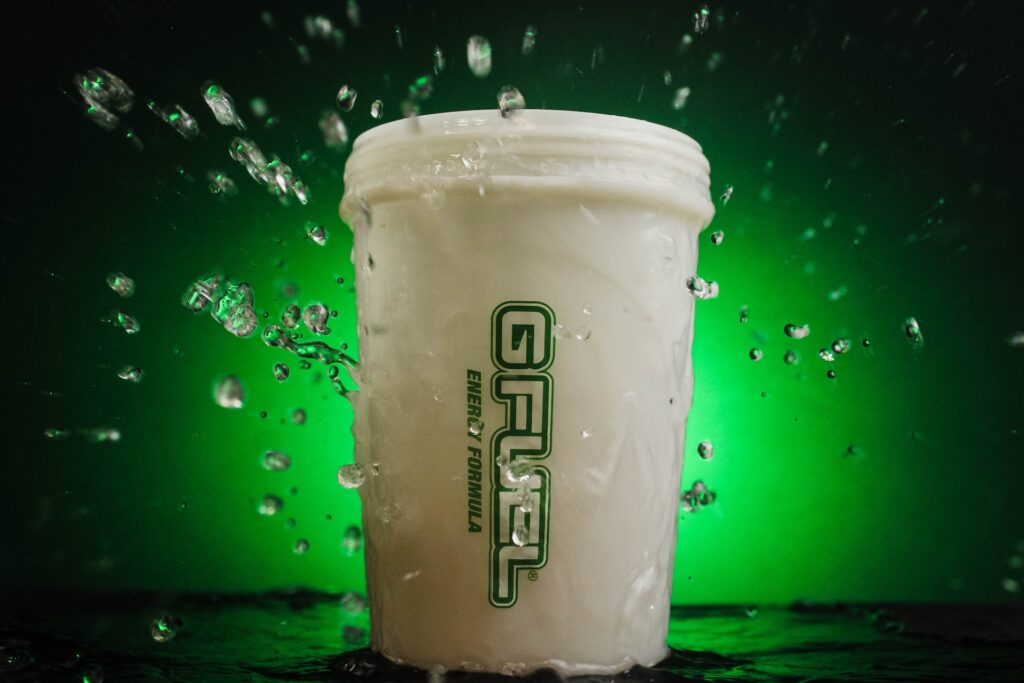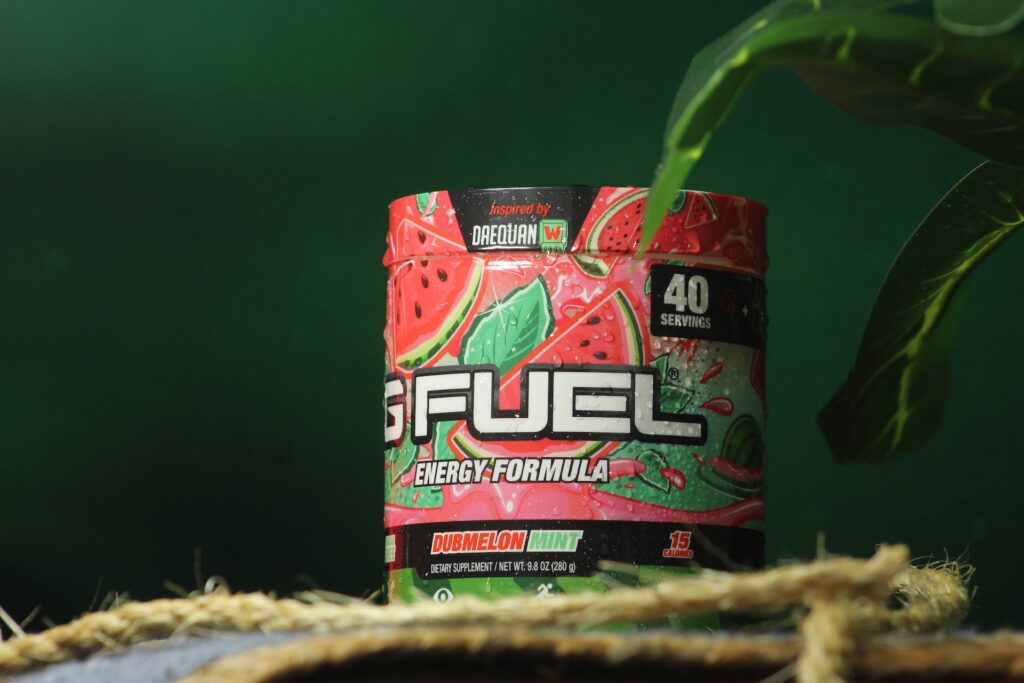What Should You Know About the GFuel Controversy?
Feb 17, 2024

As an Amazon Associate, Modded gets commissions for purchases made through links in this post.
If you’ve been keeping an eye on the gaming and esports community, you’re probably well aware of the controversy surrounding GFuel. The popular energy drink has found itself in hot water due to several concerns raised by consumers and health advocates.
The Rise of GFuel
Before we dive into the controversy, it’s essential to understand what GFuel is. GFuel is a powdered energy drink mix marketed primarily to gamers and esports enthusiasts. It gained immense popularity in recent years thanks to endorsements from gaming influencers and its promise to boost energy, focus and overall performance.

Gamma Labs created GFuel, a company founded by Cliff Morgan and Roman Atwood in 2004. Initially, the company focused on supplements for bodybuilders and athletes. However, it wasn’t until 2012 that they introduced GFuel, aiming to tap into the booming esports and gaming market. The founders’ entrepreneurial spirit played a crucial role in the drink’s rise.
The founders recognized the unique needs of gamers and saw a gap in the market for a product that could enhance focus and energy during long gaming sessions. They understood the culture, lifestyle and demands of the gaming community, which enabled them to tailor their marketing and product to the audience effectively.

The Success
GFuel has an expansive range of flavors – another critical factor in its success. They have created flavors inspired by popular video games, collaborations with gaming companies and even influencer-inspired flavors. GFuel’s powdered form offers a unique selling point. Gamers can easily customize the concentration and flavor by mixing it with water to their desired taste. This broad range of flavors and influencer campaigns helped catapult GFuel to success and in 2022, it generated an estimated $97.3 million in sales.
The Ingredients
One of the central issues that ignited controversy is the ingredients in GFuel. While Gamma Labs market it as a “healthier” alternative to traditional energy drinks, critics argue that it contains a mix of ingredients that may not be as safe as they seem. GFuel contains caffeine, taurine and various vitamins and amino acids. While these ingredients aren’t inherently harmful, the controversy stems from concerns about their long-term effects and potential interactions.
The Caffeine Conundrum
Caffeine is a key component in GFuel, and it’s a well-known stimulant. While moderate caffeine consumption can improve alertness and concentration, excessive intake can lead to jitters, anxiety and even addiction. Critics worry that the caffeine content may be too high for some individuals, potentially leading to adverse effects.

The Lack of Regulation
GFuel, like many other supplements, isn’t subject to the same rigorous testing and regulation as traditional food and beverages. This lack of oversight raises concerns about product safety and ingredient accuracy. Without strict quality control, there’s room for discrepancies in labeling and potential health risks.
The Marketing Tactics
Critics argue that GFuel’s marketing has played a significant role in the controversy. The company has faced allegations of marketing to a young and impressionable audience, including children and teenagers, which raises ethical concerns about promoting an energy drink with potentially questionable ingredients to a vulnerable demographic.
The Role of Influencers
The involvement of gaming influencers and esports personalities played a pivotal role in propelling GFuel to stardom. GFuel strategically partnered with well-known gaming personalities. Gaming and esports influencers have a significant impact on their audience’s preferences. Some influencers have been criticized for promoting GFuel without full disclosure of the potential risks.
This issue has prompted discussions about influencer responsibility and their role in promoting products that may not be suitable for everyone. Some of the most notable gaming influencers sponsored by GFuel are Pewdiepie, FaZe Clan and DrDisrespect. These influencers, with their massive followings, acted as brand ambassadors and effectively promoted the product through sponsorships, giveaways and personalized flavor collaborations.
What’s Been the Backlash?
In response to the controversy, legal challenges have emerged. Some consumers have filed lawsuits against the company, alleging false advertising, failure to disclose risks and misleading marketing practices. These legal actions have brought the issue into the courtroom and in 2018, The Environmental Research Center sued Gamma Labs for possible cancer-causing effects due to the high levels of lead in 18 of the company’s products.
Reports of adverse health incidents allegedly linked to GFuel consumption have also surfaced. These incidents range from users reporting symptoms like heart palpitations, nausea and dizziness following consumption. While it’s essential to note these reports may not prove a direct causal relationship, they have raised concerns and contributed to the public debate.
The GFuel controversy has sparked a division of opinions within the gaming community. While some consumers continue to support and endorse the product, others have expressed concerns and even boycotted GFuel. This division has resulted in debates and discussions within these communities about responsible consumption and endorsement.
The GFuel controversy has extended beyond the product itself, prompting discussions about the dietary supplement industry as a whole. Advocates for stronger regulation and accountability have used the controversy as a case in point, arguing that it highlights the need for more rigorous oversight in the industry.

The Company’s Response
Gamma has responded to the GFuel controversy by defending its product and emphasizing the choice of consumers to use the product responsibly. The company has also highlighted the importance of reading labels and consulting with health care professionals before consuming any dietary supplements.
What’s in Store for GFuel?
The future of GFuel remains uncertain as it navigates the ongoing controversy and the evolving landscape of the dietary supplement industry. To ensure long-term success, GFuel may need to address concerns related to transparency, product safety and ethical marketing practices. The company’s ability to respond to these challenges and maintain the trust of its target audience will likely determine its trajectory in the years to come.
The GFuel controversy is a multifaceted issue, receiving plenty of criticism for its health concerns and marketing ethics. As a consumer, it’s crucial to stay informed about what you consume, whether it’s an energy drink or another dietary supplement.






